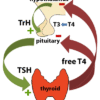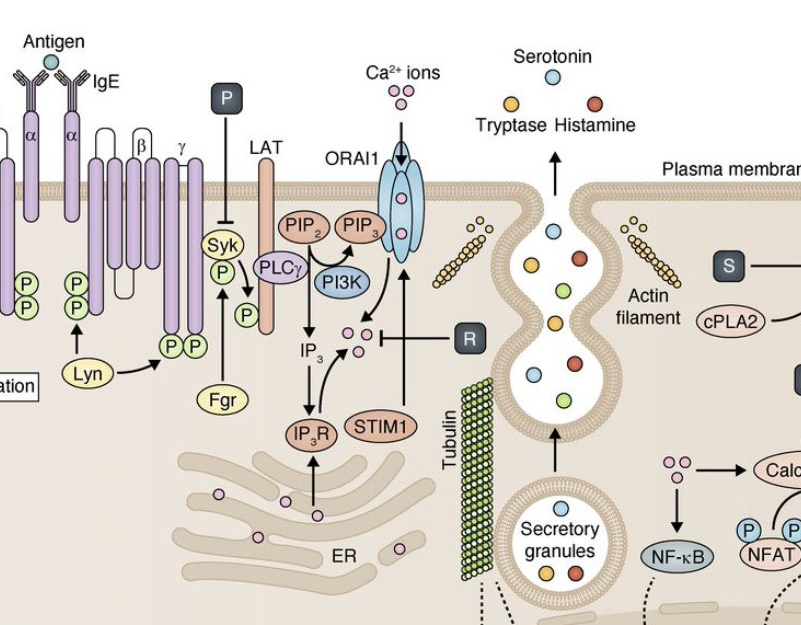Tryptase Test – for MCAS (Mast Cell Activation Disorder)
$148.00
CPT# 83520
Mast Cell Activation Disorder, ie MCAD, MCAS, histamine intolerance or mastocytosis is a term that describes the over expression of immune response by the body.
Tryptase test is ordered to determine the levels of an enzyme that is released from mast cells as an important part of the body's immune response to foods, chemicals and other activators. When activated, mast cells release tryptase along with other compounds including histamine and heparin. These are inflammatory compounds that participate in a cascade of activity that engages the immune system to neutralize and isolate elements that threaten the body.
Mast cells are large tissue cells found throughout the body. They are found in the skin, in the intestine, sinuses, lungs and bronchi, and the are in the bone marrow. They are granulocytes with granuoles that store tryptase and histamine, etc.
A condition of mastocytosis has conventionally been defined as an over expression of the mast cells. More recently MCAD, mast cell activation disorder has been implicated in a variety of conditions that afflict much of the population. This is due to an inappropriately exaggerated release of histamine from mast cCells or from an increased sensitivity to histamine.
Tryptase rises rapidly in response to an allergic activation of mast cells. In coordination with histamine, heparin and other inflammatory cells, the body reacts with symptoms ranging from skin reactions including hives, folliculitis, redness and psoriasis, to respiratory symptoms including asthma, shortness of breath, cough and mucous production, to Irritable Bowel with constipation or diarrhea and bloating. All systems of the body are influenced by the release of tryptase, histamine and heparin from mast cells.
Normally, the level of tryptase in the blood is very low. When mast cells are activated, the level increases rapidly, rising within 15 to 30 minutes, peaking at 1 to 2 hours, and returning to normal after several hours to a couple of days.


